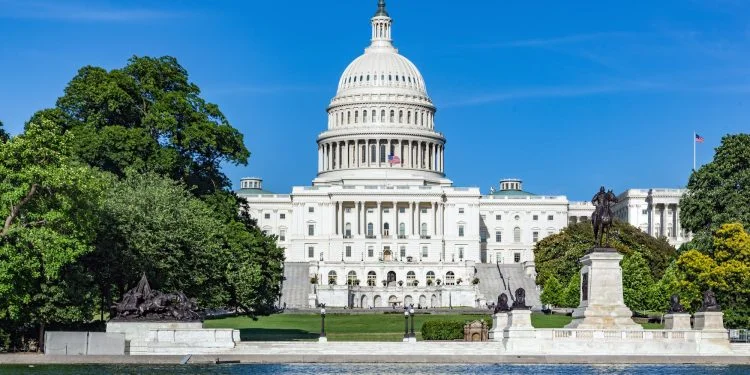Biden administration, along with Republicans in the US Congress, is engaged in active discussions to end their fight over the agenda of raising the $31.4 trillion debt ceiling. Both sides have presented many proposals to reduce the deficit by trillions of dollars.
The recently produced Biden budget for 2024 was $6.8 trillion. It aimed to increase the government’s contribution towards healthcare, childcare, and many societal upgrades to pre-pandemic levels. It also showed signs of Biden’s economic agenda to squeeze inequality. These contributions will be paid for by the increase in taxes levied on business corporations and wealthy Americans.
Main Dispute
The core of the heated debate has been discretionary spending. These expenditures are made from a different pool of funds for various other matters unrelated to compulsory society upliftment measures like Social Security and Medicare.
Biden presented the 2024 fiscal budget, which proposes a 9.4 percent increase leading to $1.9 trillion in discretionary spending; this will be increased by approximately one percent on a yearly basis. This discretionary spending would expand the deficit by a staggering $2.23 trillion over 10 years. This would be managed by increasing taxes on the wealthy.
The Republicans proposed that the 2024 US discretionary spending be reduced back to $1.664 trillion, the 2022 level, which would put a ceiling on the annual increase of 1 percent only. As per the Congressional Budget Office (CBO), this would save $3.2 trillion over a span of 10 years. There is uncertainty as to how the reduction of 4.1 percent from 2023 of the $1.736 trillion level will be divided amongst welfare programs.
There was a substantial difference in the deficit reduction figures stated by both sides. The Biden administration proposed that a complete sanction of the 2024 fiscal budget would bring down the deficit gap by $2.857 trillion.
This White House figure was significantly lower than what the Republicans proposed. As per the Limit, Save, and Grow Act of the Republicans, they will reduce the deficit by $4.804 trillion over 10 years.
Tax Regime
Republicans just proposed to revoke the clean energy tax credits and spending passed in the Inflation Reduction Act. This would save $540 billion over 10 years, as per CBO. This proposal had no signs of amending the present tax rates.
The Biden administration went heavy on tax credits, reducing them from every nook and corner to save the exchequer some extra billion dollars. They proposed canceling the green energy credits and various other tax breaks, including digital currency. This would save them $325 billion.
They proposed some changes in the taxes for corporations which seemed like some communist move to heavily tax the rich in the name of social welfare.
They have proposed to alter the international tax rules, increase the corporate income tax rate from 21 percent to 28 percent, and also raise the taxes on corporate stock buybacks. These are just a few amongst several other business tax raises that are estimated to bring in $3 trillion over 10 years.
Surprisingly, they made a move that can bombard them with widespread criticism, authorising a ‘billionaires tax’. They have proposed to levy a 25 percent tax on unrealized gains for the 0.01 percent of wealthy Americans. They also want to raise the individual tax rate from 37 percent to 39.6 percent and several other increments in capital gains and estate taxes. This would bring in an additional $985 billion into the government coffer.
Educational Reforms
The Republicans said they would reverse Biden’s student debt cancellation and expansion of income-driven student loan repayment plans. This would save $460 billion in expenses registered in the fiscal year 2022.
The Biden administration has announced an expenditure of $1.1 trillion over 10 years; this money would go into free education, supporting medical leaves, child care, family welfare, and other higher education spending.
Internal Revenue Service
Republicans will stop the $80 billion in IRS funding allowed by the signature bill passed by Biden’s Democratic Party for improving enforcement, operations, and customer service. And as per CBO, this would stretch the deficit by $120 billion over 10 years.
However, Biden has the exact opposite stance to outstretch the $80 billion in investments for the IRS for two more years. This would increase the IRS budget by $1.8 billion. This increase will result in an extra $134.1 billion in expenditure over a decade.

















